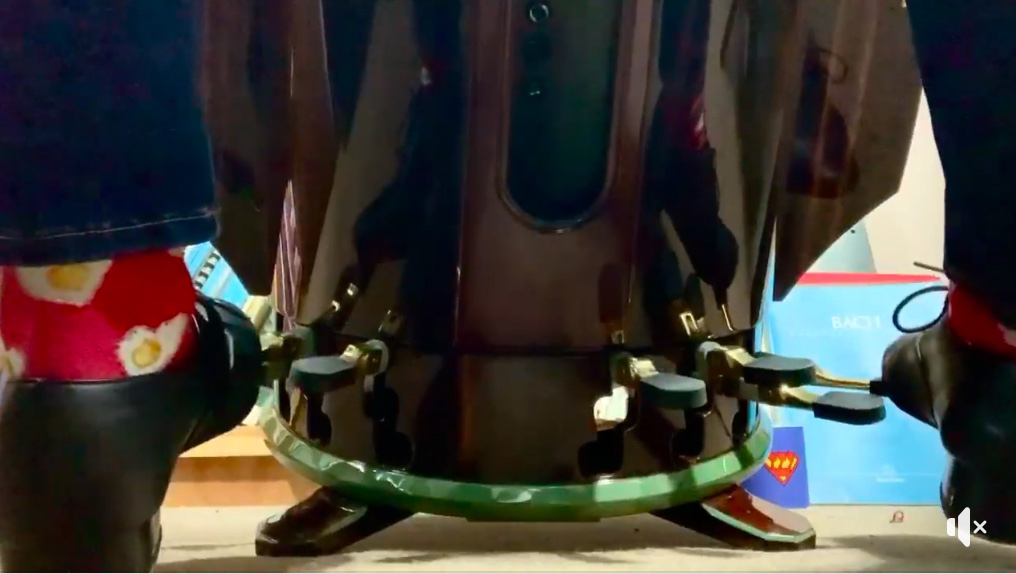by Daniel Hathaway
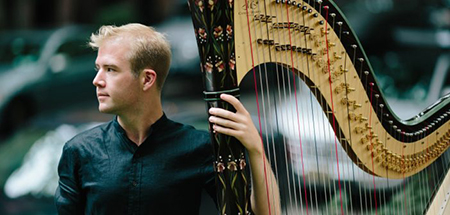
Joining a long list of arrangers, Parker Ramsay has now transcribed the Variations for the modern pedal harp, an instrument for which he holds a master’s degree from Juilliard, in addition to a degree in history from Cambridge University, plus a master’s in historical performance (organ and harpsichord) and an artist diploma (organ) from Oberlin.
Ramsay returned to his undergraduate haunts to record the Goldbergs in Henry VI’s wonderful chapel at King’s College, Cambridge, where he was the first American to serve as organ scholar. Bach: Goldberg Variations was released on September 18 on King’s own label.
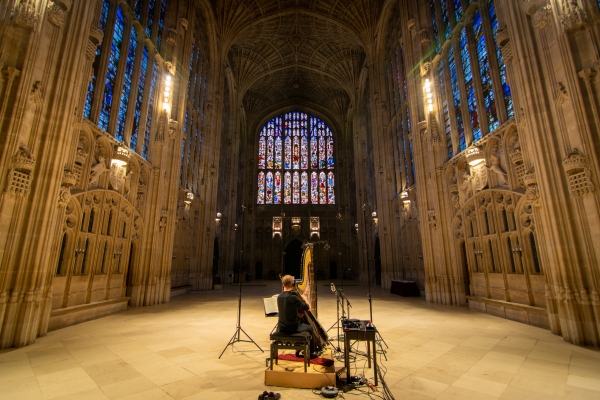
The harpist has taken on even more challenges in deciding to record in King’s Chapel, where the acoustic is super friendly to choir and organ, but allows undamped strings of the harp to continue to ring, creating a sonic nimbus that complicates harmonies and fuzzes textures.
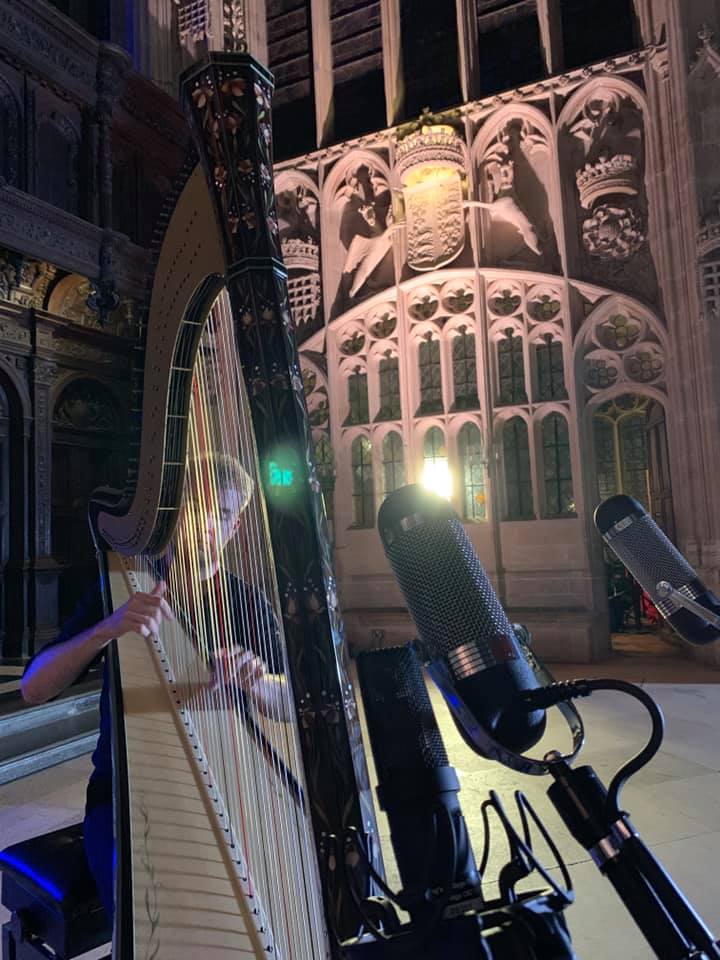
The harpist introduces mild inégalité to some melodic lines, produces fluent, diaphanous runs, and brings inner voices nicely to the foreground.
When we hit dead center of the work with the French Overture, Ramsay isn’t afraid to glissando shamelessly into big chords, an effect offset by his chaste playing of counterpoint in the fugue.
The minor key variations nearly stop time in its tracks. The elaborate coloratura of No. 25 is emotional and touching — and calls for some complicated pedal changes (click the image below to see what Ramsay has to do with his feet here).
The totality of the harpist’s playing is so elegant that Variation 30 — the quodlibet or mashup of two folk songs that allude to how long it’s been since we heard the Aria — loses a bit of its earthy humor. A small price to pay.
The CD, which comes with album notes by Tim Page and Burkhard Schwalbach, is cleanly recorded and manages to localize the sound of the harp in the vast space of King’s Chapel.
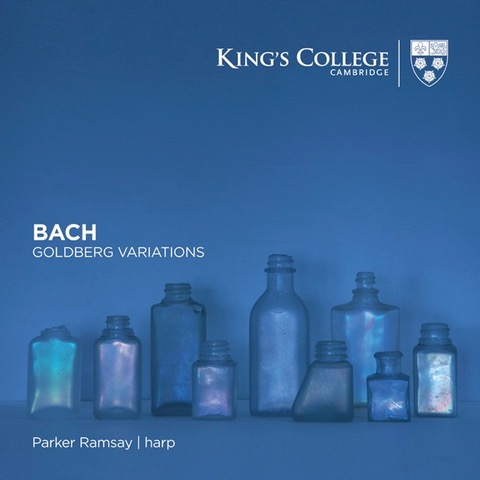
Published on ClevelandClassical.com September 22, 2020
Click here for a printable copy of this article



